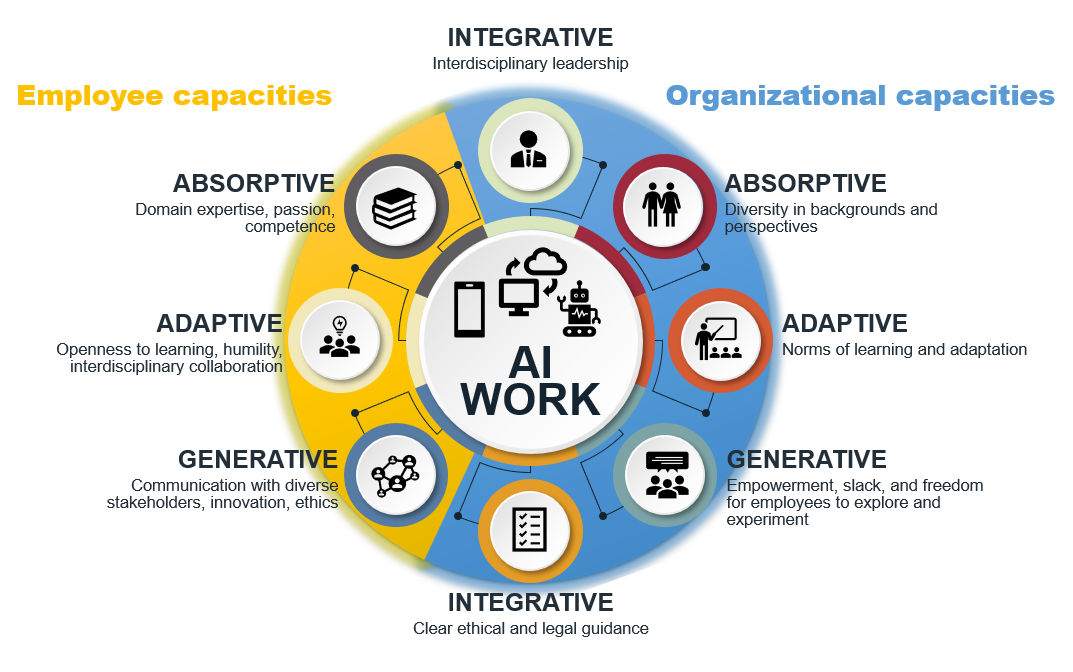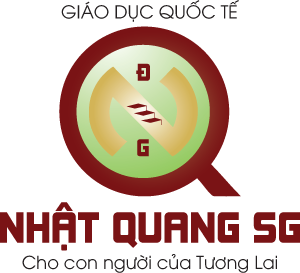
How can humans
thrive in a high-tech world?
S.R. Aurora (aka Mai Trinh), Asst. Professor of Organizational Leadership, Arizona State University
“This project advances our understanding of the human competencies needed in a high-tech future. Technology will become the foundation for human cognitive technology, and AI processing will be the basis for human cognitive abilities. This will help avoid the risk of technology controlling humans and enhance human cognitive abilities to regain control over technology.”
- NQT Hoàng Vũ Thăng, Scientist, Qigong Grandmaster
Founder, Nhat Quang Sai Gon International Education JSC
Research questions
What are the required and desired skills, competencies, and traits?
How should we prepare the future workforce to thrive?
Findings
Drawing from fifteen in-depth interviews with AI experts from eight Norwegian AI companies, we introduce a comprehensive model encompassing employee and organizational capacities vital for successful AI endeavors.
AI Model
Partners
Findings
S.R. Aurora aka Mai Trinh
Asst. Professor of Organizational Leadership,
Arizona State University
Academic Fellow, 2023
S.R. Aurora, also known as Mai P. Trinh, is an Assistant Professor of Organizational Leadership at Arizona State University since August 2016. She holds affiliations with the Decision Theater, the Center for Social Dynamics and Complexity, the Center for Behavior, Institutions, and the Environment, and the Global Futures Laboratory at ASU.
Professor Aurora's research harnesses technology to cultivate future leaders and empower individuals in our volatile, uncertain, complex, and ambiguous (VUCA) world. Her interdisciplinary work intersects leadership, education, technology, and diversity, equity, and inclusion. She combines complex adaptive systems science with agent-based modeling to uncover systemic patterns in interdependent interactions, assess intervention effects, and offer guidance to leaders and managers. Simultaneously, she applies experiential learning theory to enhance leadership training and nurture essential competencies like humility, flexibility, empathy, and systems thinking.
Her research revolves around three central themes. Firstly, she underscores the VUCA nature of our times, advocating for holistic solutions to complex challenges. Secondly, she emphasizes the need for leaders and individuals to develop competencies and experiences to navigate VUCA environments effectively. Lastly, she examines the intricate relationship between humanity and technology, including artificial intelligence, adopting a human-centric perspective.
Professor Aurora's work aligns with four United Nations' sustainable development goals: Quality education (#4), Gender equality (#5), Decent work and economic growth (#8), and Reduced inequalities (#10).
Her contributions to academia include publications in esteemed peer-reviewed journals such as The Leadership Quarterly, Academy of Management Learning and Education, Journal of Management Education, and Business Ethics: A European Review. Recognized by the Management Education & Development division of the Academy of Management, she has received several awards, including the Best Symposium Award in 2017, the Junior Faculty Best Paper Award in 2022, and the Global Forum Best Paper Award in 2023. Her excellence in teaching is acknowledged through awards like the Early Career Teaching Award, the Outstanding Teaching Award in the College of Integrative Sciences and Arts, and the Faculty Women Association's Outstanding Faculty Mentor Award.
Professor Aurora earned her doctoral degree in organizational behavior from the Weatherhead School of Management at Case Western Reserve University in 2016.





